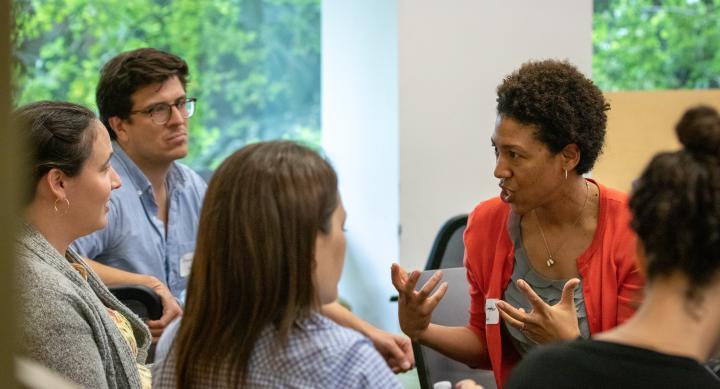
Congratulations 2025-2026 Grantees
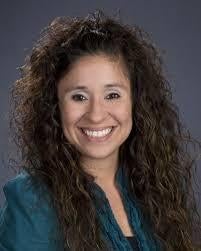
|
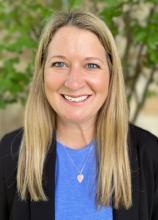
|
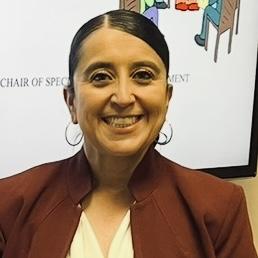
|
Tracey Flores, Associate ProfessorDepartment of Curriculum and Instruction | Angie House, PhD StudentDepartment of Curriculum and Instruction | Patricia Candelaria, PhD CandidateDepartment of Special Education |
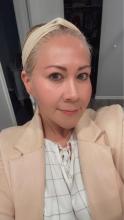
Cristina Santos
1st Grade Bilingual Teacher, Guerrero Thompson Elementary, Austin ISD
Embodied Literacy Teaching & Learning: Reading and Writing as Remedios for Educators Mindbodyspirit
This project brings together a team of university faculty, graduate students, and a bilingual elementary teacher to co-construct a healing-centered literacy practicum that integrates embodied pedagogy, restorative practices, and critical reflection. Through collaborative co-planning, co-teaching, and reflective praxis, we seek to disrupt deficit narratives and cultivate spaces of healing, joy, and collective empowerment in early literacy education.
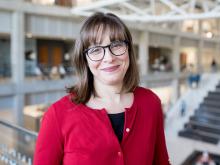
Maura Borrego, Professor
Walker Department of Mechanical Engineering and STEM Education Program
Supporting Engineering Doctoral Students with Disabilities
During fall semester 2025, Prof. Borrego and doctoral student Emily Landgren propose to host a series of four standalone meetings of engineering doctoral students and tenure-track/research faculty focused on supporting engaging, belonging, wellness and resiliency of graduate students with disabilities. Topics may include supporting disabled graduate students in TA positions, research relationships (with advisor and research group mates), supporting access to lab/engineering research, and degree progress flexibility for graduate students with disabilities. Individuals who participate will increase their understanding of challenges and ideas for support/advocacy strategies. We will archive the findings in a one-page info sheet.
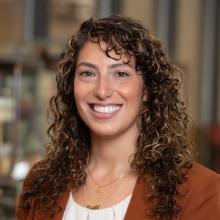
Tonia Guida, Assistant Professor
Pharmacy Practice, College of Pharmacy
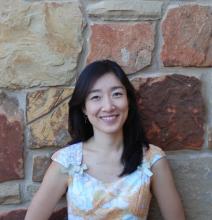
Mina Kim, Assistant Professor of Instruction
Department of Asian Studies
Mentoring Bridges: Korean Language, Community, and Belonging
Mentoring Bridges is a student-centered, community-engaged initiative that connects academic study with culturally immersive, real-world experiences for intermediate Korean learners at UT Austin, with a particular focus on non-heritage speakers. In partnership with the Austin Korean School and a Korean language program within Austin ISD, the project fosters reciprocal learning, cross-cultural understanding, and meaningful community engagement. Participants take part in storytelling, puppet theater, and multimedia production, applying their Korean language skills in creative and purposeful ways. These activities help cultivate a strong sense of belonging, identity, and social contribution. The sustainable program presents an innovative model for language education grounded in care, collaboration, and deep community connection.
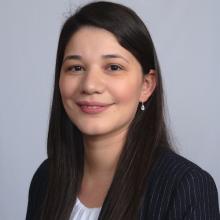
Jahanett Ramirez, MD, MPH, Research Assistant Professor
Steve Hicks School of Social Work
About Collaborative Learning Communities (CLC) Grant
Contact Kaitlyn Farrell Rodriguez if you would like to chat about the Collaborative Learning Communities (CLC) Grant.
The Collaborative Learning Community (CLC) Grant is open to all instructors (graduate student and postdoctoral instructors, lecturers, tenure-track, clinical, tenured), interested in collaborating with undergraduate or graduate students, co-instructors, inter- or intra-departmental colleagues or members of the Austin community to better enhance engagement, wellness, resilience, and belonging in the different learning spaces they co-create.
This grant is designed to support new learning communities dedicated to identifying and disrupting barriers to engagement and wellness within classrooms, clinics, studios, or labs. Funds of up to $2,500 will be awarded for projects that assemble small groups of instructors and students to discuss and learn together about strategies they can implement in learning spaces to enhance engagement, wellness, resilience, and belonging. Funds can support activities scheduled any time during Fall 2025 and/or Spring 2026 semester.
Preference will be given to proposals that meaningfully incorporate student perspectives in proposed learning communities. This may include centering student voices through co-facilitation practices, active mentorship opportunities, or the co-generation of resources to share more broadly with the UT-Austin teaching and learning community.
Collaborative learning communities will gather a minimum of three times. The consultants at the Center for Teaching and Learning (CTL) will also interview each member of the learning communities after the collaborative learning community has concluded these initial gatherings to collect key insights, resources, and best practices from the groups to inform instructor development efforts around engagement and belonging with broader Austin teaching and learning communities.
This year, we are particularly interested in applicants who look to collaboratively explore methods of promoting instructor and student engagement, wellness, resilience, and belonging in ways that fully represent the breadth of experience and expertise present within the University of Texas at Austin community.
How do I apply? What is required for the application?
You can apply through our submission form. To help you get ready, here is the information we are requesting. Applications should address all five of the following areas:
1. Description of Proposed Collaborative Learning Community (CLC)
- Who is or will be in your group? Do they come from the same department, or is this a multi-disciplinary community? What brings this group together (e.g., common experiences as instructors or learners; teaching positions; or interests)?
- How will student perspectives and voices play a role in the design and facilitation of the collaborative learning community?
- How will you recruit members and motivate them to consistently participate?
- How often will you meet?
- What is your proposed timeline within or across Fall 2025 and/or Spring 2026?
2. Community Plan
What is your plan for gatherings and ways of motivating members to participate?
For example, will you focus on case study discussion and strategizing, syllabus exchange, peer classroom observations and feedback, discussion of readings about topics of engagement, belonging, wellness, and resiliency, etc.? Something else?
3. Budget
How do you intend to spend the grant funds?
For example, will you prioritize stipends for members of guest speakers, book purchases, tickets/transportation money for an experience that would inform instructor and student conversations about topics of engagement, belonging, wellness, and resiliency etc.? Something else?
4. Outcomes and impacts
What do you want to achieve with this project?
For example, is your goal to: increase understanding of and share best practices for promoting engagement, belonging, wellness, and resiliency? To raise campus awareness about student concerns/challenges around existing barriers to learning? To create resources or curriculum revision plans for UT instructors invested in instructor self-care and care of students? Something else?
5. Dissemination plans
What will the collaborative learning community produce that you can share beyond members’ insights?
For example, will your community design a workshop modeling and providing practice opportunities for enhancing engagement, belonging, wellness, or resiliency? Will you create a series of blog posts or sets of brief video(s) for the CTL website to disseminate your findings? Will you draft an article or conference proposal and report out your discoveries at department faculty meetings? What other applications of your future work as a collaborative learning community can you imagine?
Who will be able to apply?
Any UT Austin instructor (graduate student or postdoctoral instructors, lecturers, tenure-track, clinical, tenured) may apply.
How will the proposals be evaluated?
This is an open call where submissions will be evaluated by a team consisting of CTL staff and faculty. Funds will be awarded to proposals that most clearly demonstrate:
- Clear focus on campus climate and topics of engagement, belonging, wellness and/or resilience in different types of co-created learning spaces
- Substantive rationale for how the proposed activities will directly enhance engagement, belonging, wellness and/or resilience in UT-Austin learning spaces
- Likelihood of success in recruiting and retaining participants
- Potential for impact on campus beyond the collaborative learning community’s participants
Clear connection between the budget and the proposed project
- Effort to include the voices of students or community members in design or facilitation of the learning community
How can I give back to my UT colleagues?
At the conclusion of this year’s grants, CTL will hold an informal showcase to celebrate the work done across the grant categories, discuss outcomes, and reflect on the learning community experience. More information about this showcase or a similar opportunity is forthcoming.
Financial Stipulations
Funds will be transferred to grantees’ departments. Funding requests should be consistent with relevant departmental, college, or University policy, Regents’ rules, and Texas state law.
If I have further questions, whom do I contact?
Contact Kaitlyn Farrell Rodriguez if you would like to chat about the Collaborative Learning Communities (CLC) Grant.
Contact
Contact Kaitlyn Farrell Rodriguez if you would like to chat about the Collaborative Learning Communities (CLC) Grant.

